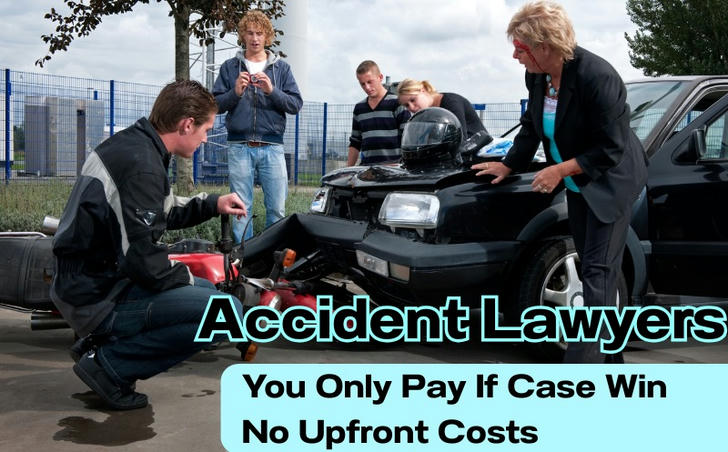A Guide to Post-Accident Claims That Everyone Must Know: How to Find a Low-Cost Lawyer and Get the Compensation You Deserve
Every year, thousands of Americans face the aftermath of car accidents—medical bills, lost wages, and emotional distress. Yet, many fail to secure the compensation they're entitled to, often due to delays or lack of legal guidance. Time is of the essence; immediate action can make the difference between a successful claim and a missed opportunity.

Real Case
** The High Cost of Delay**
Consider the case of John D., who suffered significant injuries in a car accident. Believing the insurance company would handle everything, he delayed seeking legal advice. By the time he realized the settlement offered was insufficient, critical evidence had been lost, and the statute of limitations had expired. As a result, John missed out on tens of thousands of dollars in potential compensation.
** Timely Legal Help Led to a $180,000 Settlement**
After being rear-ended at a red light in Dallas, 42-year-old Marcus didn't feel immediate pain and thought the damage was minor. But within a week, neck pain worsened, and he discovered a herniated disc. This time, unlike his brother who lost money from a similar crash, Marcus contacted a personal injury lawyer the same day. The lawyer helped him gather medical reports, dashcam footage, and witness contact info before speaking to insurance companies. Within eight months, Marcus received a $180,000 settlement covering his surgery, therapy, and lost wages—without paying anything upfront.
Core Question: How Can Ordinary People Protect Their Rights at Low Cost and High Efficiency?
Navigating the legal system can be daunting, especially when finances are tight. However, there are strategies and resources available to help individuals secure legal representation without breaking the bank. This guide outlines actionable steps to ensure you receive the compensation you deserve.
Step 1: Immediate Actions After an Accident
Collect Evidence
Immediately after an accident, gather as much information as possible:
Photographs of the scene, vehicle damages, and any visible injuries.
Contact information of witnesses.
Official police reports.
This evidence is crucial for building a strong case.
Avoid Direct Settlement with the Other Party's Insurance Company
Insurance companies often aim to minimize payouts. Accepting a quick settlement without legal consultation can result in inadequate compensation. It's advisable to consult with a lawyer before agreeing to any terms.
Step 2: Finding a Low-Cost Lawyer
Legal Aid Resources: Legal Aid Associations and Public Interest Law Firms
For those with limited income, several organizations offer legal assistance:
Maryland Legal Aid: Providing a full range of civil legal aid to financially qualified individuals through 12 office locations.
MidPenn Legal Services: A nonprofit public interest law firm providing high-quality civil legal assistance to low-income residents of central Pennsylvania.
Legal Aid DC: Provides legal aid services to low-income residents of the District of Columbia.
Contingency Fee Arrangements
Many personal injury lawyers operate on a contingency fee basis, meaning:
No upfront fees are required.
Lawyers receive a percentage of the settlement or court award.
You only pay if Case win,No upfront costs.
For example, Munley Law in Harrisburg, PA, operates on a contingency fee basis, ensuring clients pay no upfront costs.
Online Platforms: LegalMatch and Avvo
These platforms connect individuals with attorneys based on specific legal needs:
LegalMatch: Allows users to present their case and receive responses from pre-screened lawyers.
Avvo: Provides detailed lawyer profiles, including experience, reviews, and fee structures, helping users make informed decisions.
Step 3: Maximizing Your Compensation
Calculate the Reasonable Compensation Range
When assessing your claim, consider:
Medical expenses (current and future).
Lost wages and reduced earning capacity.
Pain and suffering.
Property damage.
Consulting with a lawyer can help accurately estimate the value of your claim.
Beware of the Insurance Company's "Quick Settlement" Trap
Insurance adjusters may offer quick settlements to close cases swiftly. However, these offers often undervalue the true cost of injuries and damages. Always consult with a legal professional before accepting any settlement.
Step 4: Long-Term Protection
Regularly Review Legal Rights
Injuries can have long-term effects. Regular medical check-ups and legal consultations ensure that any delayed symptoms or complications are documented and addressed promptly.
Join Victim Mutual Aid Communities
Support groups and community organizations can provide emotional support, resources, and shared experiences, aiding in the recovery process.
Securing fair compensation after an accident doesn't have to be financially burdensome.By taking prompt action, utilizing legal aid resources, understanding contingency fee arrangements, and being careful about insurance claims, individuals can effectively and economically protect their rights.
